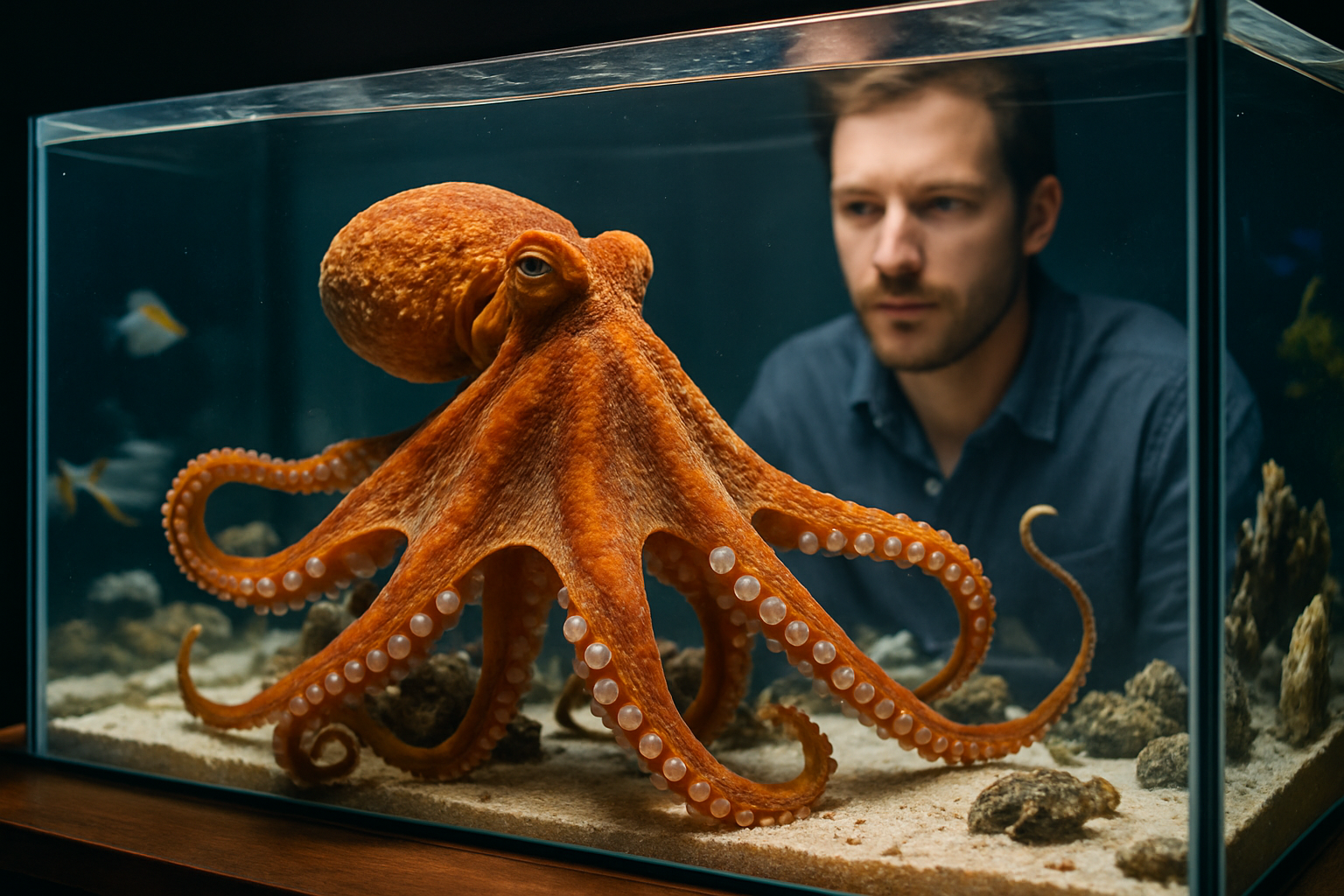The Intriguing World of Octopuses as Pets: A Comprehensive Guide
Octopuses, with their alien-like appearance and remarkable intelligence, have always fascinated humans. Recently, they have been gaining popularity as unconventional pets. This article delves into the intriguing world of octopuses as pets, providing a detailed background, current updates, and market impact.

A Historical Perspective: Octopuses in Home Aquariums
The concept of keeping octopuses as pets is not entirely new. In the 1960s, marine biologists began studying these creatures in captivity, which sparked interest among aquarists. However, it wasn’t until the early 2000s that the trend started gaining momentum. The advent of the internet and advancements in aquarium technology made it possible for hobbyists to share knowledge and resources, facilitating the care of these complex creatures.
Current Trends: The Rising Popularity of Octopuses as Pets
Today, octopuses are becoming increasingly popular as pets, especially among experienced aquarists looking for a unique challenge. Species like the Common Octopus and the Dwarf Octopus are particularly sought after due to their manageable size and fascinating behaviors. However, keeping an octopus as a pet is not for the faint-hearted. They require specialized care, including a carefully maintained aquatic environment and a diet of live food.
The Market Impact: Cost and Considerations
The cost of owning an octopus can vary greatly depending on the species. A common octopus can cost anywhere from $30 to $100, while rarer species can fetch prices in the thousands. This price does not include the cost of setting up and maintaining a suitable aquarium, which can run into hundreds or even thousands of dollars. Despite the high costs, the demand for pet octopuses continues to grow, contributing to the expansion of the exotic pet market.
The Science Behind the Trend: Octopuses’ Remarkable Abilities
Research has shown that octopuses are among the most intelligent invertebrates, capable of problem-solving and even exhibiting play-like behavior. Their ability to change color and texture, escape from enclosures, and interact with their environment in complex ways makes them fascinating pets. However, their intelligence also means they require mental stimulation and environmental enrichment, adding another layer of complexity to their care.
The Future of Octopuses as Pets: Challenges and Opportunities
While the trend of keeping octopuses as pets is on the rise, it also raises important ethical and conservation issues. Octopuses are solitary, short-lived creatures with specific habitat requirements, making them challenging to keep in captivity. Furthermore, most pet octopuses are wild-caught, which can have negative impacts on local populations. As the trend continues to grow, it will be crucial for hobbyists, scientists, and conservationists to work together to ensure the welfare of these remarkable creatures.
In conclusion, the world of octopuses as pets is intriguing and complex. While they offer a unique and rewarding experience for dedicated aquarists, they also pose significant challenges. As we continue to learn more about these fascinating creatures, it is our responsibility to ensure their care and conservation.






